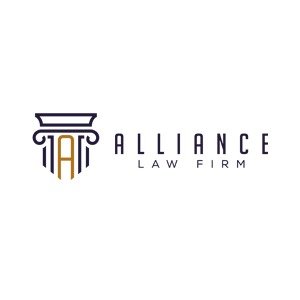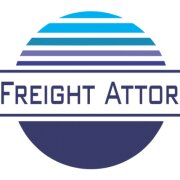Best Nonprofit & Charitable Organizations Lawyers in Port Harcourt
Share your needs with us, get contacted by law firms.
Free. Takes 2 min.
List of the best lawyers in Port Harcourt, Nigeria
About Nonprofit & Charitable Organizations Law in Port Harcourt, Nigeria
Nonprofit and charitable organizations in Port Harcourt, Nigeria, play a vital role in addressing social issues and contributing to community development. These organizations are often formed to serve public or mutual benefits other than the pursuit or accumulation of profits for owners or investors. They can include NGOs, foundations, community-based organizations, and religious groups. The legal framework governing these entities is designed to ensure they operate transparently, accountably, and in compliance with ethical standards.
Why You May Need a Lawyer
Understanding the complexities associated with nonprofit and charitable organizations can be challenging. Here are some common situations where legal help might be required:
- Establishing the organization: Legal guidance is critical when choosing a legal structure, drafting articles of incorporation, and ensuring full compliance with registration requirements.
- Regulatory compliance: Legal counsel can assist in navigating the laws and regulations that govern nonprofit activities, which vary based on the organization's focus and scope.
- Tax-exempt status: Achieving and maintaining tax-exempt status is complex and requires compliance with specific tax laws and regulations.
- Board governance: Lawyers can help establish policies for effective governance, addressing potential conflicts of interest, and setting up fiduciary responsibilities of board members.
- Contracts and agreements: Legal advice is needed in drafting, reviewing, and negotiating contracts with donors, vendors, and partners.
- Dispute resolution: Legal representation can be vital when resolving disputes within the organization or with external parties.
Local Laws Overview
In Port Harcourt, nonprofit and charitable organizations operate under the regulatory framework set by Nigerian law, primarily the Companies and Allied Matters Act (CAMA) 2020. Key aspects include:
- Registration with the Corporate Affairs Commission (CAC) as Incorporated Trustees.
- Compliance with tax laws and obtaining appropriate exemptions from the Federal Inland Revenue Service (FIRS).
- Adhering to financial reporting standards and maintaining transparency in operations.
- Allocation of resources strictly for charitable purposes as specified in the organization’s objectives.
- Ensuring governance structures are in place, including a board of trustees or directors.
Frequently Asked Questions
What is the process of registering a nonprofit organization in Port Harcourt?
The process typically involves choosing a name, drafting founding documents, filling for registration with the Corporate Affairs Commission (CAC) as an Incorporated Trustee, and paying the required fees.
Do all nonprofit organizations qualify for tax exemption?
No, not all nonprofit organizations automatically qualify for tax exemptions. They must apply to the Federal Inland Revenue Service (FIRS) and prove their eligibility based on their charitable activities.
Can a nonprofit distribute profits to its members?
No, profits generated by a nonprofit must be used solely to further the organization's objectives and cannot be distributed to members or stakeholders.
What governance structures are required for nonprofits?
Nonprofits must have a board of trustees or directors responsible for oversight and ensuring the organization meets its legal and ethical obligations.
How can a nonprofit handle internal disputes?
Disputes can be handled by establishing a clear conflict resolution policy, using mediation or arbitration, or seeking legal advice if necessary.
Are there restrictions on foreign donations to nonprofits?
Yes, nonprofits receiving foreign donations must comply with regulations set by the Nigerian government's Special Control Unit against Money Laundering (SCUML).
What are the reporting requirements for a nonprofit organization?
Nonprofits are required to maintain accurate financial records and submit annual returns to the Corporate Affairs Commission (CAC) and relevant tax authorities.
Can a nonprofit organization engage in political activities?
No, engaging in political campaign activities or supporting political candidates is prohibited for nonprofit organizations to maintain their status and credibility.
What liability protection does the board of trustees have?
The board of trustees is generally protected from personal liability if they act within their roles and comply with the law and fiduciary responsibilities.
How can a nonprofit ensure compliance with local laws?
Compliance can be ensured by staying informed on legal changes, providing training for staff, conducting regular audits, and consulting with legal experts when necessary.
Additional Resources
Several resources and organizations can provide assistance and information to nonprofits in Port Harcourt:
- Corporate Affairs Commission (CAC)
- Federal Inland Revenue Service (FIRS)
- Special Control Unit against Money Laundering (SCUML)
- Nigeria Network of NGOs (NNNGO)
- Local legal aid clinics offering pro bono services
- Online portals and forums dedicated to nonprofit management and compliance
Next Steps
If you need legal assistance for your nonprofit in Port Harcourt, consider the following steps:
- Identify your specific legal needs, such as registration, compliance, or dispute resolution.
- Seek recommendations for qualified legal professionals experienced in nonprofit law.
- Consult with a lawyer to discuss your situation and obtain advice tailored to your organization's context.
- Take proactive steps to implement legal and governance structures to protect and advance your nonprofit's mission.
Lawzana helps you find the best lawyers and law firms in Port Harcourt through a curated and pre-screened list of qualified legal professionals. Our platform offers rankings and detailed profiles of attorneys and law firms, allowing you to compare based on practice areas, including Nonprofit & Charitable Organizations, experience, and client feedback.
Each profile includes a description of the firm's areas of practice, client reviews, team members and partners, year of establishment, spoken languages, office locations, contact information, social media presence, and any published articles or resources. Most firms on our platform speak English and are experienced in both local and international legal matters.
Get a quote from top-rated law firms in Port Harcourt, Nigeria — quickly, securely, and without unnecessary hassle.
Disclaimer:
The information provided on this page is for general informational purposes only and does not constitute legal advice. While we strive to ensure the accuracy and relevance of the content, legal information may change over time, and interpretations of the law can vary. You should always consult with a qualified legal professional for advice specific to your situation.
We disclaim all liability for actions taken or not taken based on the content of this page. If you believe any information is incorrect or outdated, please contact us, and we will review and update it where appropriate.
















